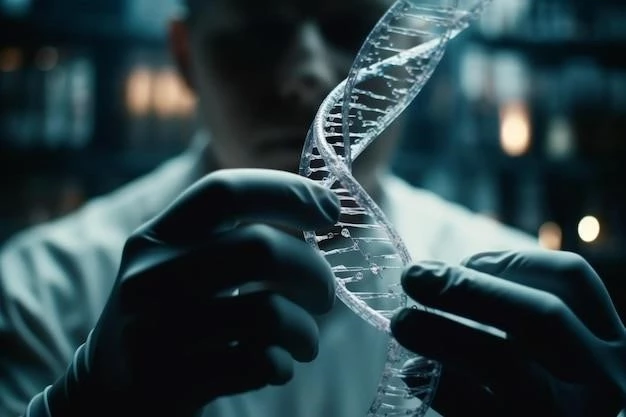Introduction
Wiedemann-Steiner Syndrome (WSS) is a rare genetic disorder that causes developmental delay, unusual facial features, short stature, and reduction in muscle tone. First reported in 1989, the genetic basis for the syndrome was identified in 2012.
Description of Wiedemann-Steiner Syndrome (WSS)
Wiedemann-Steiner Syndrome (WSS) is a rare genetic disorder characterized by developmental delay, distinct facial features, short stature, and reduced muscle tone. First documented in 1989, the condition was officially recognized as a syndrome in 2000. The genetic basis was identified in 2012, linking de novo mutations in the KMT2A gene to WSS. Individuals with WSS exhibit a range of symptoms including hypertrichosis, behavioral issues, and intellectual disability. The syndrome’s diagnosis can pose challenges due to its variable presentation, necessitating comprehensive clinical evaluations and genetic testing.
Clinical Characteristics
Wiedemann-Steiner Syndrome (WSS) manifests through developmental delays, unique facial features, short stature, reduced muscle tone, hypertrichosis, and intellectual disability, requiring thorough evaluation and management strategies.
Common Symptoms of WSS
Individuals with Wiedemann-Steiner Syndrome (WSS) commonly present with dysmorphic facial characteristics, such as long eyelashes, thick or arched eyebrows, a broad nasal bridge, and narrow eye openings. Other prevalent symptoms include short stature, developmental delay, hypertrichosis cubiti, intellectual disability, and behavioral difficulties. Consulting healthcare professionals for diagnosis and management is crucial in addressing these symptoms and providing appropriate care for individuals with WSS.
Phenotypic Spectrum of WSS
Wiedemann-Steiner Syndrome (WSS) showcases a broad phenotypic spectrum encompassing facial dysmorphism, cognitive impairment, growth retardation, hypertrichosis cubiti, and behavioral issues. Each individual may exhibit unique combinations of these features, highlighting the variability in manifestations within the syndrome.

Genetic Basis
Understanding the genetic basis of Wiedemann-Steiner Syndrome (WSS) involves recognizing the implications of KMT2A gene mutations. These mutations play a key role in the development and manifestation of the syndrome, shedding light on diagnostic approaches and potential therapeutic avenues.
Identification of Causative Gene
Dr. Wendy D. Jones’s groundbreaking work in 2012 pinpointed de novo mutations in the KMT2A gene as the causative factor behind Wiedemann-Steiner Syndrome (WSS). This genetic discovery revolutionized our understanding of WSS٫ offering insights into its pathogenesis and potential therapeutic targets.
KMT2A Gene Mutations in WSS
Research has established the significant role of KMT2A gene mutations in driving the pathogenesis of Wiedemann-Steiner Syndrome (WSS). These mutations, identified in 2012, contribute to the unique clinical manifestations observed in individuals with WSS and highlight the genetic underpinnings of the syndrome.
Social Characteristics
Individuals with Wiedemann-Steiner Syndrome (WSS) exhibit unique social responsiveness and behaviors influenced by the syndrome’s symptoms, which can impact interactions and daily functioning. Understanding these social characteristics is vital in providing comprehensive care and support for individuals with WSS.
Social Responsiveness in Individuals with WSS
Individuals diagnosed with Wiedemann-Steiner Syndrome (WSS) exhibit unique social responsiveness that can be influenced by the syndrome’s characteristic symptoms, including intellectual disability and behavioral challenges. Understanding and addressing these social aspects are crucial in providing effective support and enhancing the quality of life for individuals living with WSS.
Impact of WSS on Social Behavior
Understanding the impact of Wiedemann-Steiner Syndrome (WSS) on social behavior is crucial in providing tailored support and interventions for individuals affected by the syndrome. The characteristic symptoms of WSS can influence social interactions and daily functioning, necessitating a comprehensive approach to address the social behavior challenges associated with WSS.
Diagnosis and Management
Diagnosing and managing Wiedemann-Steiner Syndrome (WSS) can be challenging due to its varied symptoms. Implementing thorough diagnostic assessments and individualized management strategies are essential in providing optimal care for individuals with WSS.
Diagnostic Challenges of WSS
Diagnosing Wiedemann-Steiner Syndrome (WSS) presents challenges due to its variable and overlapping symptoms. Genetic testing and comprehensive clinical assessments are crucial to accurately diagnose individuals with WSS and differentiate the syndrome from other conditions with similar features.
Management Strategies for WSS Patients
Effective management of Wiedemann-Steiner Syndrome (WSS) patients involves a multidisciplinary approach, incorporating genetic counseling, early intervention programs, behavioral therapies, and tailored educational and social support. Individualized care plans addressing the unique needs of each patient can improve their overall well-being and quality of life.

Prognosis
Understanding the life expectancy and quality of life in individuals with Wiedemann-Steiner Syndrome (WSS) is critical for providing appropriate care and support. While there is limited evidence of shortened life expectancy in most individuals with WSS, managing the condition effectively can enhance outcomes and overall well-being.
Life Expectancy and Quality of Life in WSS
Individuals with Wiedemann-Steiner Syndrome (WSS) may have a similar life expectancy compared to the general population. However, the quality of life for individuals with WSS can vary depending on the severity of their symptoms and the effectiveness of management strategies. Providing comprehensive care and support can positively impact the quality of life for individuals living with WSS.
Research Studies
Stay informed about the latest developments in research studies focusing on Wiedemann-Steiner Syndrome (WSS), including clinical trials and case studies. Keeping up-to-date with ongoing research can provide valuable insights into the management and understanding of WSS.
Current Research on WSS
Stay updated on the latest research endeavors focusing on Wiedemann-Steiner Syndrome (WSS), including advancements in understanding the genetic basis, clinical manifestations, and potential therapeutic interventions. Keeping abreast of ongoing research studies can contribute to the enhancement of diagnostic approaches and management strategies for individuals affected by WSS.
Case Studies and Clinical Trials
Exploring case studies and ongoing clinical trials related to Wiedemann-Steiner Syndrome (WSS) can provide valuable insights into the management, treatment approaches, and potential therapeutic advancements for individuals affected by this rare genetic disorder. Staying informed about the outcomes of these studies can contribute to the enhancement of care and support for individuals living with WSS.
